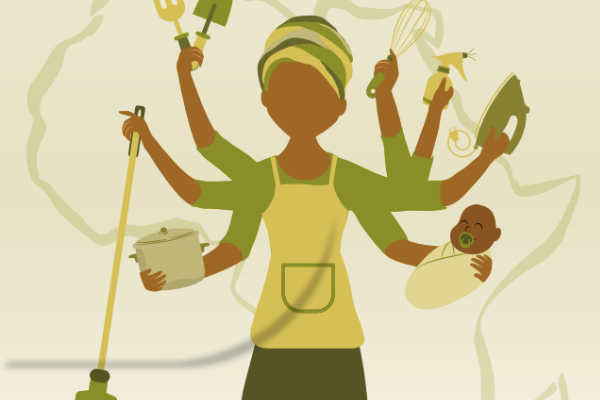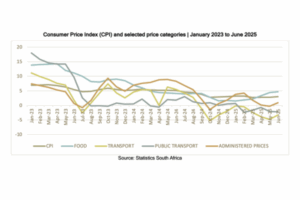Care work has long been a central theme in feminism, appearing prominently in contexts from the debates on the socialization of domestic labour that emerged during the Russian Revolution to the international campaign for wages for housework in the 1970s.[1] However, only recently has gained traction in public agendas as an object of knowledge and state policy. This shift is linked to the growing inability of large swaths of the population to reproduce their lives as expected, either because they cannot sell their labour power or because they do so irregularly and their wages are insufficient to meet all their needs.
This crisis raises the question of why society does not recognize care tasks in monetary form (especially where care work is done in the form of community networks). While past debates critiqued the family and capitalism’s role in the production and reproduction of labour power, today’s discussions centre on the “reproduction crisis,” and the struggle for the recognition of care work coincides with the struggle around a so-called Citizen’s Income or Universal Basic Income.
In keeping with the concerns of “old” feminisms, this article focuses on the role of the family in the capitalist mode of production, specifically as a necessary site of care work. I seek to explore how we meet our needs under capitalism and why care work has predominantly fallen into the hands of women.
How do we meet our needs under capitalism?
The way we meet our needs, mainly through the market, has a historical character. As earlier modes of social organization dissolved, production shifted away from the family sphere, limiting its role to the consumption of means of life, which increasingly became commodities. From then on, in order to consume and reproduce life, it became necessary to have money derived from a previous sale.
But not all of the commodities flowing into a household are directly consumed by family members. Instead, many undergo a transformation through a work process. Food must be prepared, clothes washed, the house cleaned. “What they call love is unpaid work” is a slogan that feminists have used since the 1970s to highlight the social necessity of domestic labour. There is no consensus, however, on why it is not paid.[2] One perspective, flowing from the critique of political economy, posits that the labour process and consumption within the family happen immediately, and therefore, money does not need to represent the work done by each individual.[3]
The key to the capitalist form of social organization, however, lies in the purchase of labour capacity. The family ceased to be a realm of social production because capitalism entails the commodification of labour power. Producers are dispossessed of the means of labour to work on their own, being forced to sell to those who possess them the only thing they have in their power. Therefore, with the advent of the capitalist mode of production, the family becomes primarily a working-class family. Only those who manage to sell their labour power and obtain a salary in exchange can consume the means of life.
Showing that what is called care work is fundamental for the reproduction of labour power as a commodity is another merit of feminism.[4] It is a capacity that must be constantly renewed not only in current workers but in potential future sellers of labour power: the children, who need to be fed, bathed, healed, and educated.
Why does care remain in the hands of the family?
The tasks involved in the reproduction of labour power can be fulfilled in various ways: through the market by purchasing goods, services, or labour power; through the state via public health, education, and welfare services; or through personal relationships, predominantly within the family.
Why is this so? Because in capitalism, labour power must be carried by private owners, that is, by free subjects. More precisely, “doubly free” in the sense that they are free from personal dependency relationships and dispossessed of the means of production to be able to work. The capacity to behave as a free subject is a historical attribute that must be produced. The fact that work is privatized in the form of the family produces individual consciousness of subjects’ existence “in themselves”. As if we were something internally and only then relate to others, first in the family, privately, and then in other spheres.[5] Therefore, the family continues to appear, especially in school discourses, as the “basic cell” of society.
This means that given the condition of free individuals we have in capitalism, the production of new generations cannot be directly social. It is in the hands of mothers and fathers, as their property: children always belong to someone. No matter how natural it may seem, the fact that we care and do more for our own children than for others is a historical result derived from freedom. The family is a social, historical form of resolving the reproduction of human beings privately with the mediation of personal dependency ties. What we call “private life” is a necessary form of capitalism, like the production of commodities in general. Despite appearing as a historical remnant, a family today is not the same as a pre-capitalist family — not only because its concrete forms have varied (from rural to urban, from extended to nuclear, etc.), but because its content is different.
Moreover, the specific form in which members of the working class reproduce themselves is determined by the material form that the organization of work in society takes, requiring certain knowledge, skills, and dispositions for each place and historical stage. These attributes are transformed whenever capitalists, in pursuit of profit, are compelled to revolutionize the material forms of work organization and social consumption. These transformations require that the work done to produce these attributes increasingly falls outside the family and is provided by institutions like schools, socialized care spaces, etc., clashing with the necessarily private character of the family for the production of free individuals.
Why are women the primary caregivers?
As care work becomes socialized, women’s participation in the labour market increases, as they bear the majority of care tasks at home. This is because individuals assigned female at birth, based on their presumed capacity to gestate, are socialized to develop attributes associated with caregiving. Evidence of this socialization is clear starting in childhood. Children do not choose certain types of play due to their intrinsic nature; rather, their play reflects the internalization of gender roles, a social division of labour. Gender is the form that the production of different productive attributes takes based on this differentiation. It is a historical way of assigning the total labour capacity of society.
Even so, every material transformation in the way production occurs entails a modification of what we humans are, which includes forms of family and care. These are differentiated according to capital’s requirements from different portions of the working class.
For the more skilled working class, care work is reduced via market outsourcing, access to public services, and postponing the age for motherhood or directly rejecting it. In these portions of the working class, we also see changes (through a necessarily conflictive process) in care discourses and practices, including greater male participation. For the working class performing simpler tasks, such transformations increase demand for their capacity to work in the form of marketized care, but also produce problems in managing care within the family itself, leading to discussions about its unequal distribution (and in this context, the so-called “global care chains”).
Thus we see that it is impossible to ask about care work without also asking about the way work in society is organized in general. And questioning the care work done in the private realm of the family compels us to confront the problem of the private nature of labour broadly. The developments in the critique of political economy are an unavoidable starting point.
Author: Tamara Seiffer is an associate researcher at UNQUI/CONICET and lecturer at the University of Buenos Aires and the National University of Central Buenos Aires.
References
Dalla Costa, M., & James, S. (1977). El poder de la mujer y la subversión de la comunidad. Siglo XXI.
Elias, N. (1998). La civilización de los padres. En La civilización de los padres y otros ensayos (pp. 407-450). Editorial Norma.
Federici, S. (2013). Revolución en punto cero: Trabajo doméstico, reproducción y luchas feministas. Traficantes de Sueños.
Gardiner, J. (1975). El papel del trabajo doméstico. En W. Seccombe, J. Gardiner, & J. Harrison (Eds.), El ama de casa bajo el capitalismo (pp. 101-123). Anagrama.
Iñigo Carrera, J. (2021). Conocer el capital hoy. Usar críticamente El Capital (Segunda edición ampliada). Imago Mundi.
Marx, K. (1999). El capital. El proceso de producción del capital. Tomo I (Vol. 1). Siglo XXI.
Seccombe, W. (1974). The Housewife and Her Labour Under Capitalism. New Left Review, I/83, 3-24.
Vogel, L. (2013). Marxism and the oppression of women. Toward a Unitary Theory. Rutledge University Press.
[1]The most well-known representative of this campaign is Silvia Federici (2013).
[2]The most important references include Seccombe (1974), Gardiner (1975), Dalla Costa & James (1977) and Federici (2013).
[3]See Marx (1999) and Iñigo Carrera (2021).
[4]See Vogel (2013).
[5]See Elias (1998).
View the original article.
RELATED ARTICLE
Valuing care work: What are the prospects for women in the National School Nutrition Programme?







